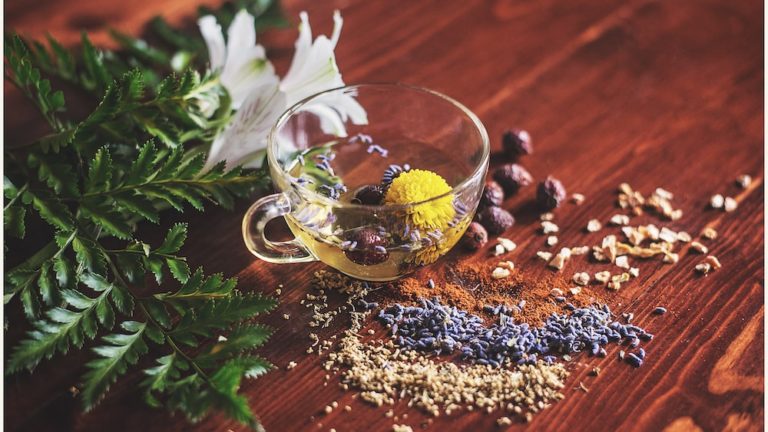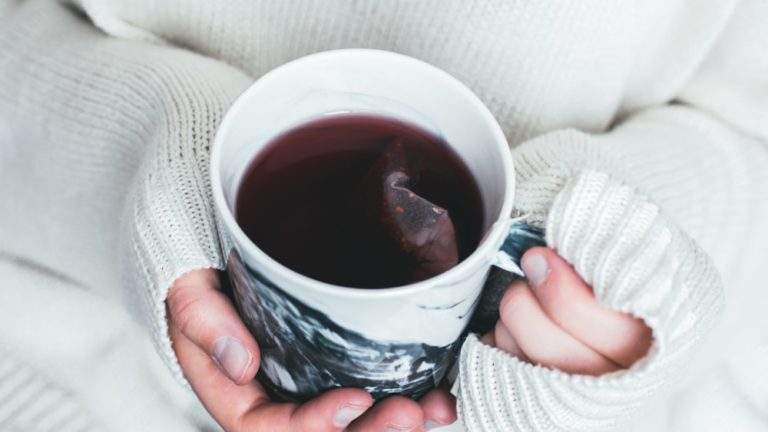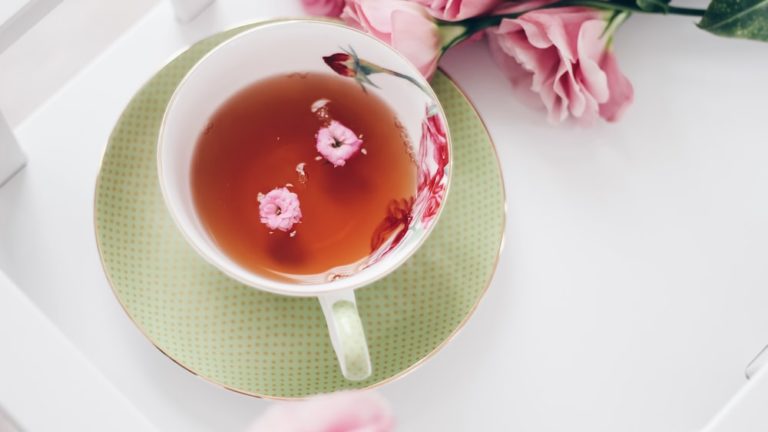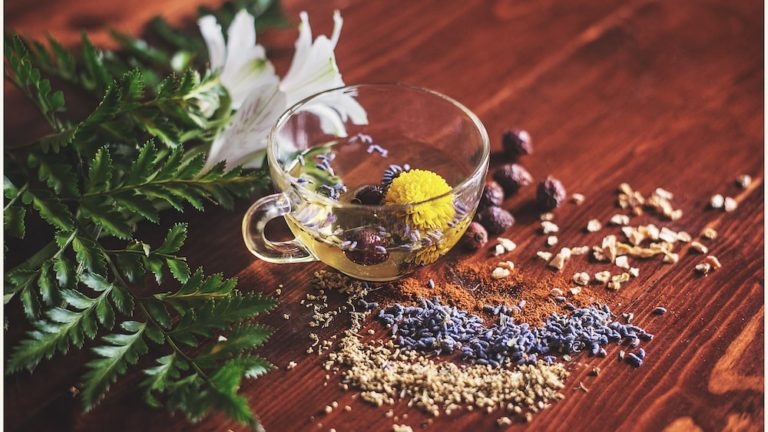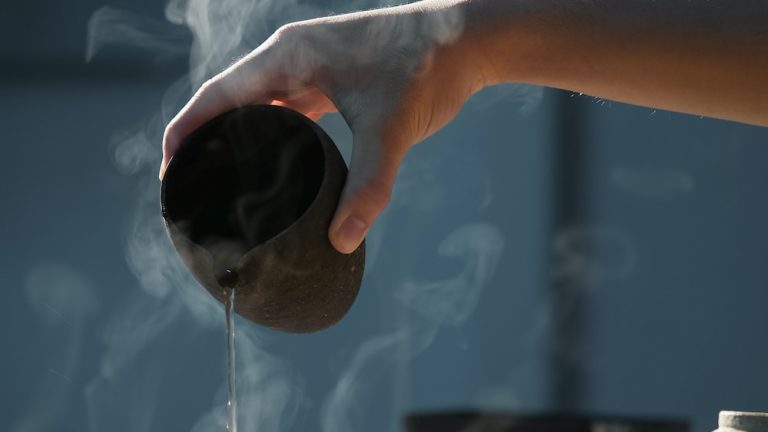Green Tea Vs Decaf Coffee: Which Is Healthier For You?
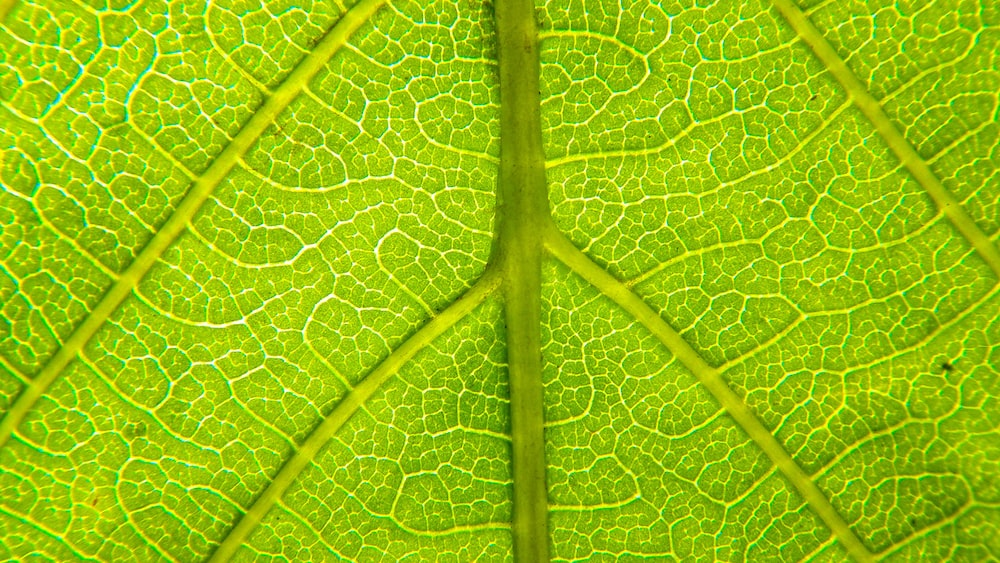
Green Tea Vs Decaf Coffee: Which Is Healthier For You?
Hello, tea and coffee lovers! Ever found yourself dithering in the supermarket aisle, holding a box of shiny green tea on one hand, and a pack of decaf coffee in the other, utterly befuddled? The struggle is real, folks. Trust me; I’ve been there. As a card-carrying member of the ‘I-need-a-warm-beverage-to-start-my-day’ club, the saga of green tea vs. decaf coffee plays out far too often in my own life. So, I embarked on a journey of discovery, a caffeine-infused odyssey, if you will, to unravel the mysteries of these two popular drinks.
Why wouldn’t you be confused, though? Both beverages come from globally recognized plants, both conjure up enticing aromas and flavors, and both are sworn by health-conscious individuals worldwide. Not to mention the buzz surrounding their well-advertised health benefits that veer on this side of miraculous. But the real question that plagues us all is, which is healthier: green tea or decaf coffee?
In the spirit of informed consumerism, let’s put on our Sherlock Holmes hats and dissect these drinks for what they truly are. Prepare yourself for an exciting trip through caffeine levels, health benefits, and nutritional comparisons. And yes, we will sneak in some fun trivia to keep things light-hearted yet informative. Let the games begin!
Understanding Green Tea and Decaf Coffee
Before we embark upon our great drink debate, it’s essential to comprehend what exactly green tea and decaf coffee are. Yes, they’re both loved worldwide for their unique flavors and health benefits. But it’s time to look under the hood and get into the nitty-gritty.
What is Green Tea?
Native to China and India, green tea comes from the leaves of the Camellia sinensis plant. Sounds fancy, doesn’t it? Now, what sets green tea apart from its black and oolong tea siblings? It all boils down (pun intended) to the process of oxidation. Green tea leaves are not fermented but lightly steamed, which explains their lighter hue and slightly bitter flavor.
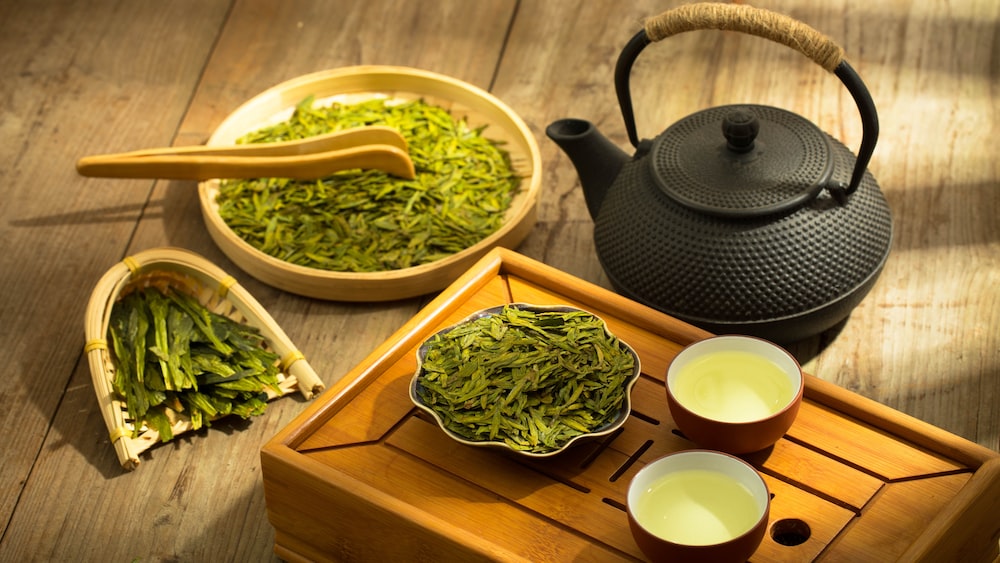
But what’s all the hullabaloo about green tea, you ask? Well, it’s loaded with antioxidants and beneficial polyphenols. Oh, and those afternoon tea rituals with friends? Just remember, every time you toast your cup of warm, comforting green tea, you’re not just cheering for friendship, but for better health too!
Green tea is different from black and oolong teas because it is not fermented but lightly steamed, resulting in a lighter hue and slightly bitter flavor, and it is loaded with antioxidants and beneficial polyphenols.
What is Decaf Coffee?
Ah, the misunderstood child of the coffee family! Our dear friend decaf coffee comes from the same beans as regular coffee. The difference lies in the decaffeination process, which strips away most (but not all – remember, no process is perfect, just like us, my friend!) of the caffeine.
Decaf coffee is the go-to choice for people who adore the language of coffee but prefer to sidestep caffeine’s jitter-inducing effects. However, altering the coffee beans often results in a milder taste and lighter roast, as compared to regular coffee – a fact that has often placed decaf coffee as the punchline of countless coffee-enthusiast jokes. Well, let the world jest. We know that every cup of decaf is secretly saying, “I’ve got your back, buddy!”
Caffeine Content Comparison
After understanding our contenders well, it’s time we address the caffeinated elephant in the room: How different, or similar, is the caffeine content in green tea and decaf coffee?
Caffeine in Green Tea
Alright, fellow tea enthusiasts! Let’s brew some facts about green tea and caffeine. Contrary to popular belief, green tea does contain caffeine. However, the kick is much less pronounced compared to your regular cup of joe.
On average, a cup of green tea packs about 20-45 milligrams of caffeine. The exact amount can vary depending on factors like the type of tea leaves, brewing time, and temperature. Despite the presence of caffeine, many people report feeling calmer after a cup of green tea. Interesting, right?
Caffeine in Decaf Coffee
Now, let’s splash some light on decaf coffee’s caffeine content. Despite its name, decaf coffee is not entirely caffeine-free. Shocked? The decaffeination process typically removes about 97% of caffeine from the coffee beans. This leaves behind a minor caffeine content that can range from 2 to 7 milligrams per cup.
So, while it won’t exactly perk you up like a regular coffee, a cup of decaf isn’t just warm, flavored water. And remember, sometimes, less is more – or at least that’s what I say when folks tease me about my decaf preferences!
Health Benefits
Finally, we’re heading into the much-anticipated segment of our odyssey – the mighty health benefits of green tea and decaf coffee. Pop the kettle on, and get ready for some wisdom to be infused into our minds, just as those lovely flavors steep into our drinks!
Health Benefits of Green Tea
Ah, green tea! The emerald elixir from the East, quivering with a rich blend of antioxidants. Did you know that each sip of green tea you take brims with catechins, mighty warriors fighting against the free radicals bantering about in your body? Well, now you do! It’s like having an ensemble of mini superheroes within you, isn’t it?
Additionally, green tea has been acclaimed for its ability to amplify fat burning and boost your metabolic rate. Trying to shake off those pesky pounds that seem to have a steadfast love affair with your waistline? Green tea might be just the ticket! Caffeine, one of the major components, synergizes with catechins to cast a spell of enhanced fat burning, which might just bring a twinkle to your gym trainer’s eye.
Green tea is a powerful elixir packed with antioxidants that can help fight free radicals, boost metabolism, and aid in weight loss.
Health Benefits of Decaf Coffee
Let’s saunter over to the realm of decaf coffee now. Now, you might be clutching your chest and gasping, “Decaf coffee has benefits, too?!” You bet your buttons it does!
Primarily, drinking decaf actually has the potential to help control certain risk factors for heart diseases like hypertension, owing to its lower caffeine content. Moreover, it bolsters the health of your liver. No, I’m not talking about providing your liver with a gym membership! Several studies explicate that drinking decaf coffee could help reduce liver enzyme levels – a key marker of liver health.
Additionally, decaf coffee comes bearing the gift of antioxidants. Yes, you heard it right, decaffeination doesn’t leech all the good stuff out of it. It still contains a substantial lineup of antioxidants that combat inflammation, fight off free radicals, and unveil a cavalcade of wellness benefits.
Nutritional Content
Moving on to the nutritional content, green tea and decaf coffee don their respective armors of goodness. But wait! Is there a clear winner here? Or do they provide an equilibrium of health benefits? Let’s lift the veil and gaze at the nutritional battlefield, shall we?
Nutritional Value of Green Tea
Green tea is much like that nerdy sibling who has it all – the brains, the looks, and the cha-cha! Each cup serves up an impressive nutritional profile. Aside from the caffeine buzz it grants, green tea is pregnant with polyphenols like flavonoids and catechins, which are applauded for their powerful effects on the body’s well-being.
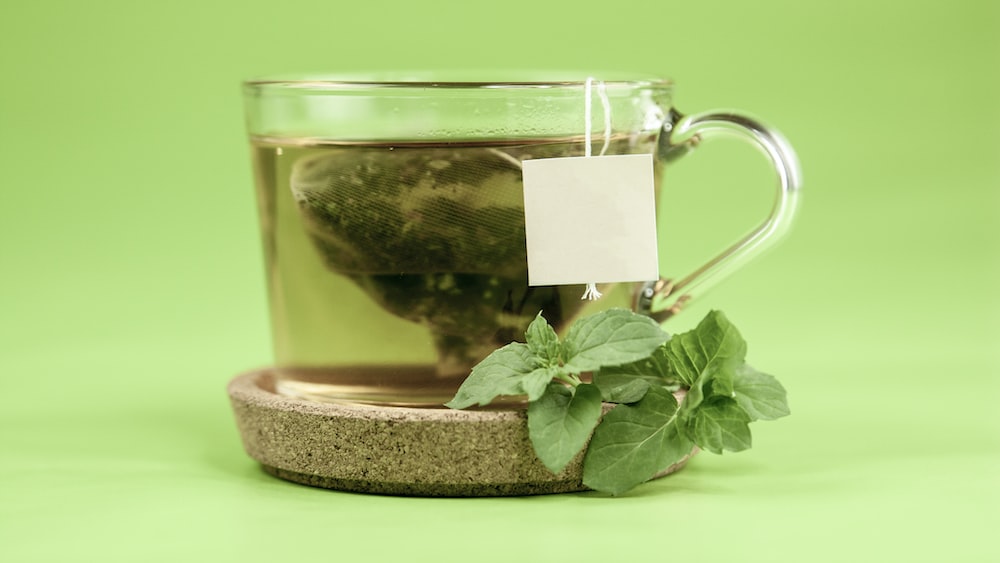
What’s more, it has minerals that are crucial for your health. But hold your horses there, partner! Some lower-quality green tea brands may include excessive amounts of some minerals, like fluoride. So, be an eagle-eyed shopper when you’re on the hunt for your green tea.
Nutritional Value of Decaf Coffee
Ladies, and gentlemen, now it’s the turn of our decaffeinated companion, decaf coffee, to step onto the nutritional podium. Much like its fully caffeinated counterpart, decaf coffee is teeming with key nutrients. We’re talking Vitamins B2, B3, and B5 as the stellar crowd. Also tagging along is Magnesium, swooping down with its protective powers against type 2 diabetes.
But the party doesn’t stop there. It also has a decent serving of Potassium, Manganese, and other nutrients that rouse your body to a standing ovation. Not bad for a drink that’s resigned from the caffeine club, huh?
Potential Risks and Side Effects
For all the fanfare about these titans of tea and coffee, we also need a clear-eyed view of potential risks and side effects. As Dumbledore once wisely said, “It does not do to dwell on dreams and forget to live,” and we wouldn’t want to pay no heed to the possible risks, now, would we?
Risks and Side Effects of Green Tea
With green tea, ironically, it’s the caffeine that may sometimes stir up a potential storm in your tea cup. In some, it might induce sleeping difficulties, lead to an upset stomach or cause a rapid heart rate. Meanwhile, the tannins might pounce upon your iron absorption, leading to iron deficiency in extreme cases.
Now, we also have potential interaction with medications, where green tea could play a sneaky villain role. Certain compounds in it may alter the effects of drugs. It’s always wise to keep your healthcare professional in the loop and go ahead only with a thumbs up from them. You don’t want to throw the baby out with the bathwater while aiming for health benefits, do you?
Risks and Side Effects of Decaf Coffee
Ah, decaf coffee, the dark knight of nighttime coffee lovers. Enjoyed by many but not without its risks and side effects. Despite the lack of caffeine, this coffee isn’t exactly the health superhero we all hope it’ll be. Decaf coffee can lead to heartburn or gastroesophageal reflux. This might happen due to the increased production of stomach acid after consuming decaf coffee. You’d think it’d keep its chemical claws away from your belly, but alas, it giveth and it taketh, doesn’t it?
Even though decaf coffee goes through a decaffeination process, it still may contain residual amounts of caffeine. While this might sound like a surprise bonus, foroversensitive individuals or people with certain heart conditions, it can be an unwanted extra. Imagine enjoying your favorite creamy latte, only to get jolted awake by a random shot of caffeine. Talk about a late-night plot twist!
Lastly, some decaf coffee is processed using chemical solvents to extract the caffeine, and there are concerns about potential health risks associated with these chemicals. Kind of like a shady sidekick you didn’t know your coffee had. The good news is, many manufacturers now use water processing methods which are considered safer. So, while decaf coffee might have some secret missions to upset your health, a little vigilance can save the day!
Decaf coffee can still cause heartburn, may contain residual caffeine, and have potential health risks associated with chemical solvents, but choosing brands that use water processing methods can mitigate these issues.
FAQs
1. How much caffeine is in green tea compared to decaf coffee?
In green tea, you’ll typically find around 20-30 mg of caffeine per cup, while decaf coffee generally contains around 3 mg of caffeine. So, if you’re watching your buzz, green tea offers a stronger kick.
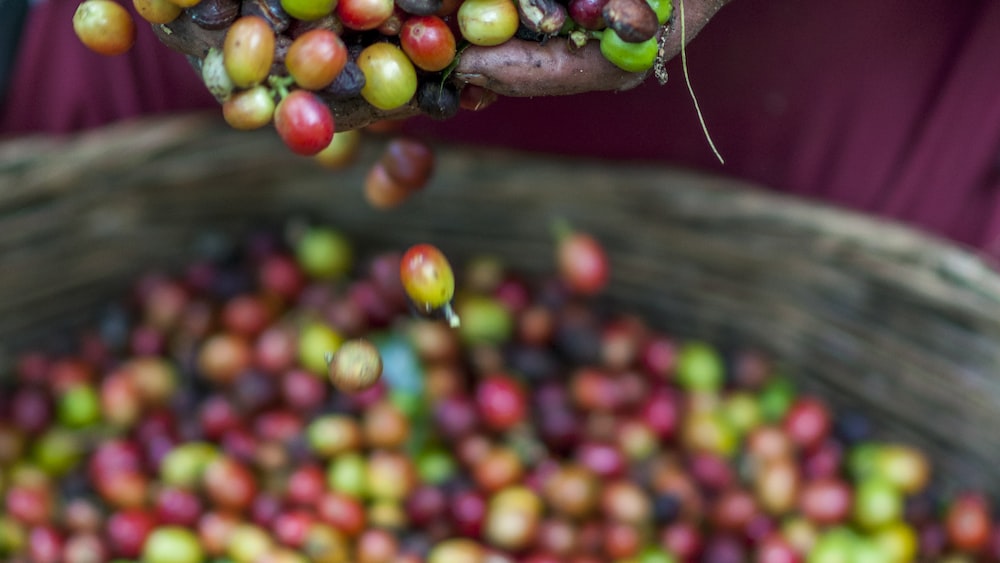
2. What are the health benefits of green tea and decaf coffee?
The health benefits of green tea include enhanced brain function, fat loss, a lower risk of cancer, and many other impressive benefits. While decaf coffee, on the other hand, contains antioxidants and nutrients that can improve brain health, protect against certain cancers, and reduce inflammation.
3. Are there any side effects of consuming green tea or decaf coffee?
The side effects of consuming green tea or decaf coffee are generally minimal for most people. However, some people may experience stomach upset, sleep disturbances, or other side effects dependent on the individual’s sensitivity and consumption habits.
4. Which is healthier: green tea or decaf coffee?
As to which is healthier, green tea or decaf coffee, it really depends on personal health goals and tolerance. If you’re caffeine-sensitive but still want a health boost, decaf coffee could be your best bet. But if you can handle a mild caffeine dose and want to tap into the wider health benefits, green tea is the way to go!
Conclusion
As we sail out of the steamy waters of this hot beverage battle, it’s clear that the choice between green tea and decaf coffee isn’t simply black or white, or even green! It ultimately depends on your health, lifestyle, and personal preference.
Remember, both green tea and decaf coffee have their unique capabilities — just like superheroes with different powers but on the same team! So, why not mix it up and enjoy the benefits of both? After all, variety is the spice of life, tea, and coffee!
Sip on that, tea, and coffee enthusiasts! Steep, sip, savor, and always go with what stirs your taste buds and heart, knowing the choice is truly yours.
Wishing you delicious, health-filled moments with your cup of pleasure, Zoe.

